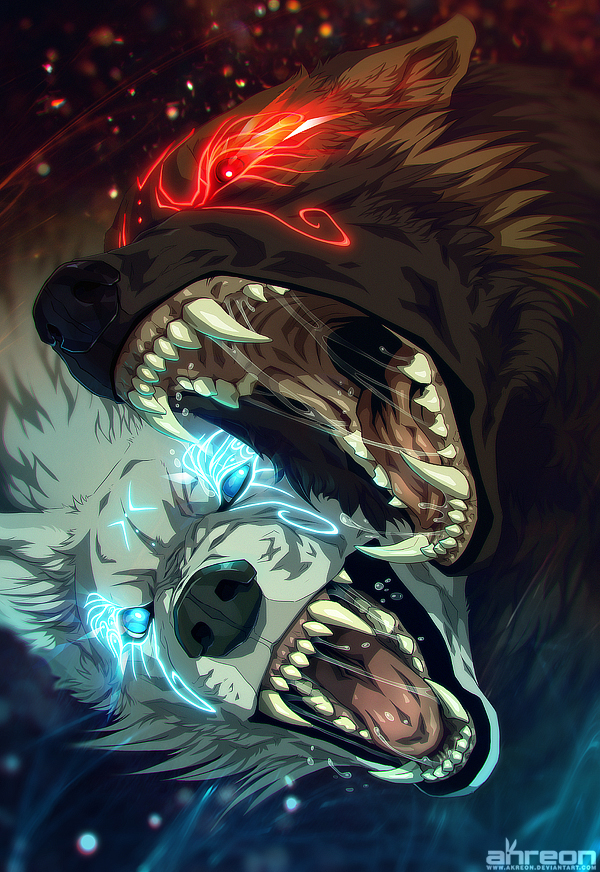
Hati vs Skoll by akreon on DeviantArt
From what a pretty brief Internet search, I've learned that Skoll means something like 'traitor', 'treachery', or, 'one who mocks'. And Hati is 'hatred', 'enemy', or 'one who hates'. But, from what I can tell, those names are far from the translations of those words individually.
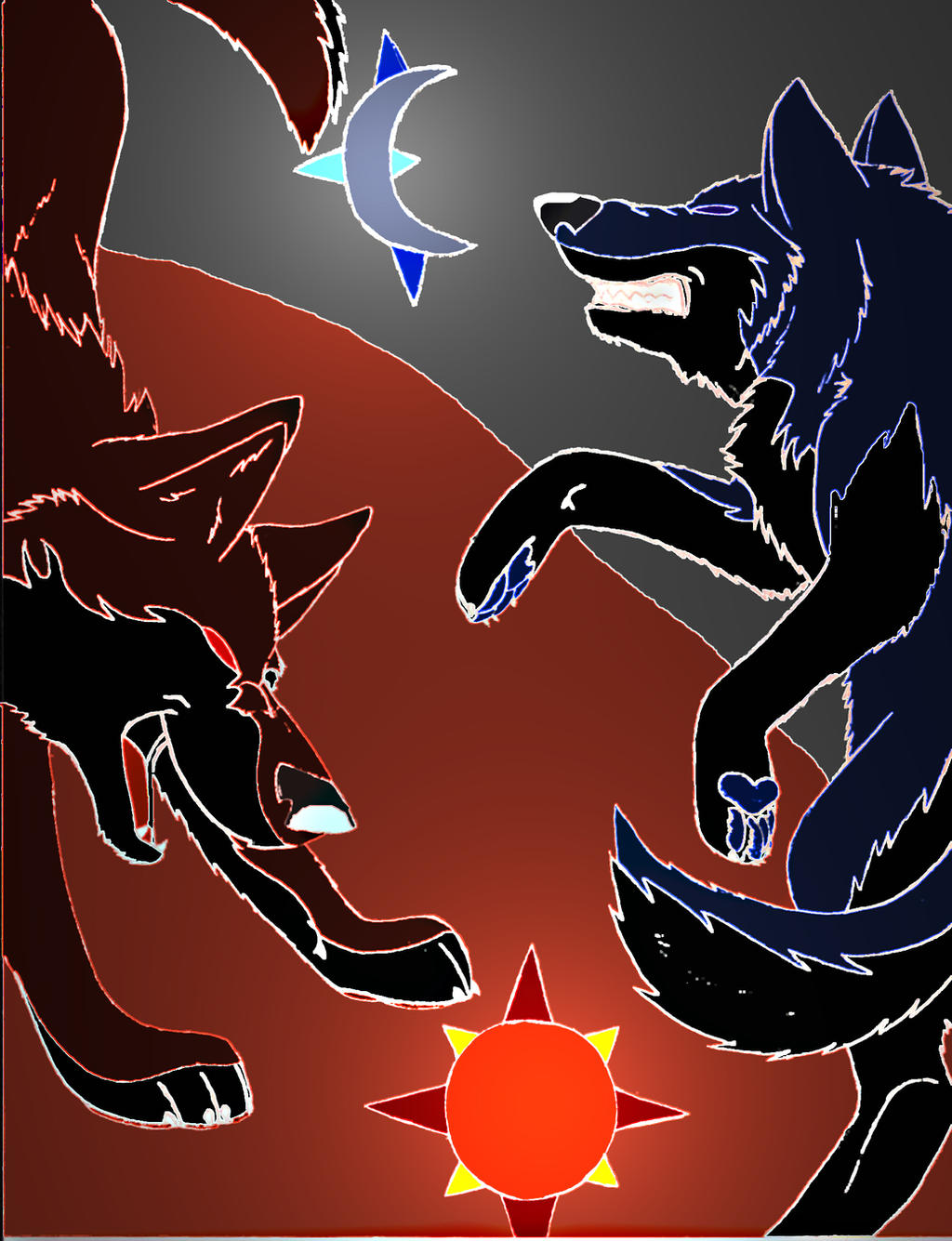
Skoll and Hati by Rayshathewolf on DeviantArt
The names Hati and Sköll, derived from the Old Norse language, are imbued with meanings that reflect their respective roles in the Norse mythological universe. Hati, derived from the Old Norse term "hǫttr," translates to "hood" or "covering." This is thought to reference Hati's pursuit of the moon—a celestial body often symbolized as a.
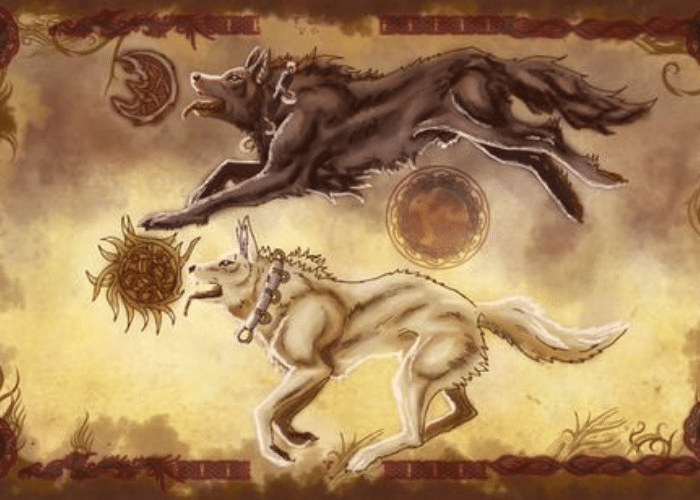
Sköll and Hati Norse Wolves of Darkness The Complete Guide
Sköll and Hati weren't always in the sky chasing the chariots. When both the Sun and the Moon weren't late, the wolves could visit the earth below them. But, in case one of the chariots was late, the wolves were sent back to the sky to continue their chase. Skoll was known as the quiet wolf who doesn't speak much, and he never liked that.
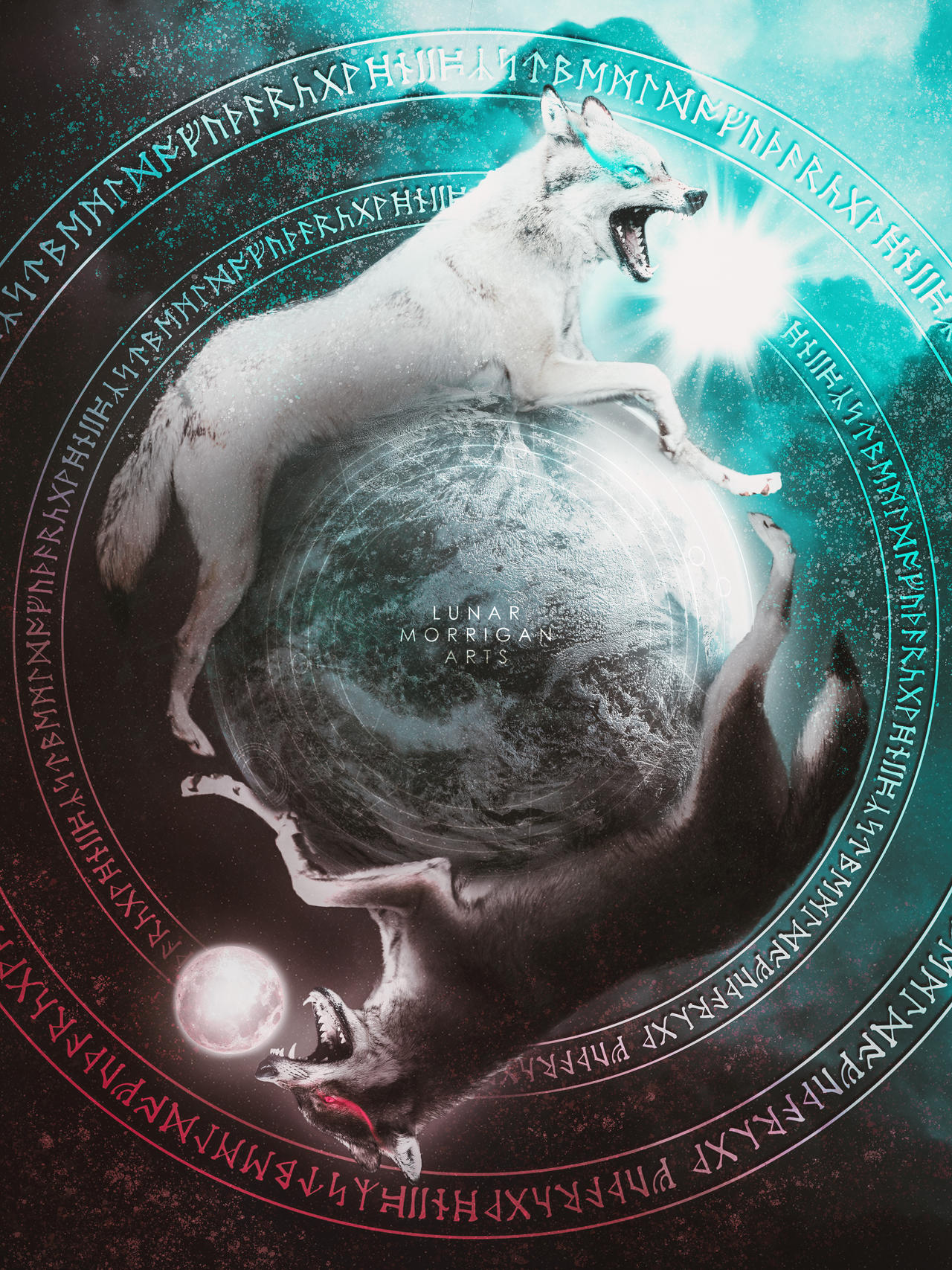
Skoll and Hati by LunarMorrigan on DeviantArt
Skoll and Hati is the sixth knife and the first weapon that is dual-wielded. In Norse Mythology, Sköll and Hati are the names of ghostly wolves who pursue goddesses, Sól and Máni, respectively. The description of the dual blades is a nod to the translations of their names in Norse Mythology. In.

Hati and Skoll Lustre print Pagan Shamanic Wolves Edda Norse Folk Wall art Viking art, Art
Skoll's name means "treachery" in Old Norse, while Hati's name means "Hater". Hati is also sometimes given two different last names - Hróðvitnisson (Son of Rage) and Managarm (Moon-hound). When Fenris was chained, Hati and Skoll were the only ones who came to defend him. Loki and Angrboda themselves did not interfere, knowing the necessity of.

War Dragons for iOS & Android Tales from the Dragon's Den Blog
In Norse mythology, two enormous wolves are named Skoll and Hati. They are the children of Iarnvidia, the giant, and Fenrir, the wolf deity. It is stated that Skoll and Hati follow the sun and moon, respectively. These two wolves, offspring of the great wolf Fenrir, are said to be destined to one day catch and eat thei

Skoll and Hati Cartoon by MayhWolf Mythological Creatures, Fantasy Creatures, Off White Comic
Skoll and Hati are two of the most fascinating characters in Norse mythology. Their nature and actions are intriguing and mysterious. Sköll and Hati are mentioned in stories about Odin, Ragnarok, and many others. In the original Norse myths, Sköll and Hati are two giant wolves who chase the moon (Mani) and sun (Sol).

Skoll & Hati in 2021 Skoll and hati, Odin norse mythology, Fantasy wolf
The Origin of Hati and Skoll. The story of Hati and Sköll begins with their parentage. According to Norse culture, these celestial wolves are the offspring of a giantess named Angrboða and the trickster god, Loki. This unusual family tree is just the tip of the iceberg when it comes to the intriguing nature of Norse folklore! The Role of Hati.
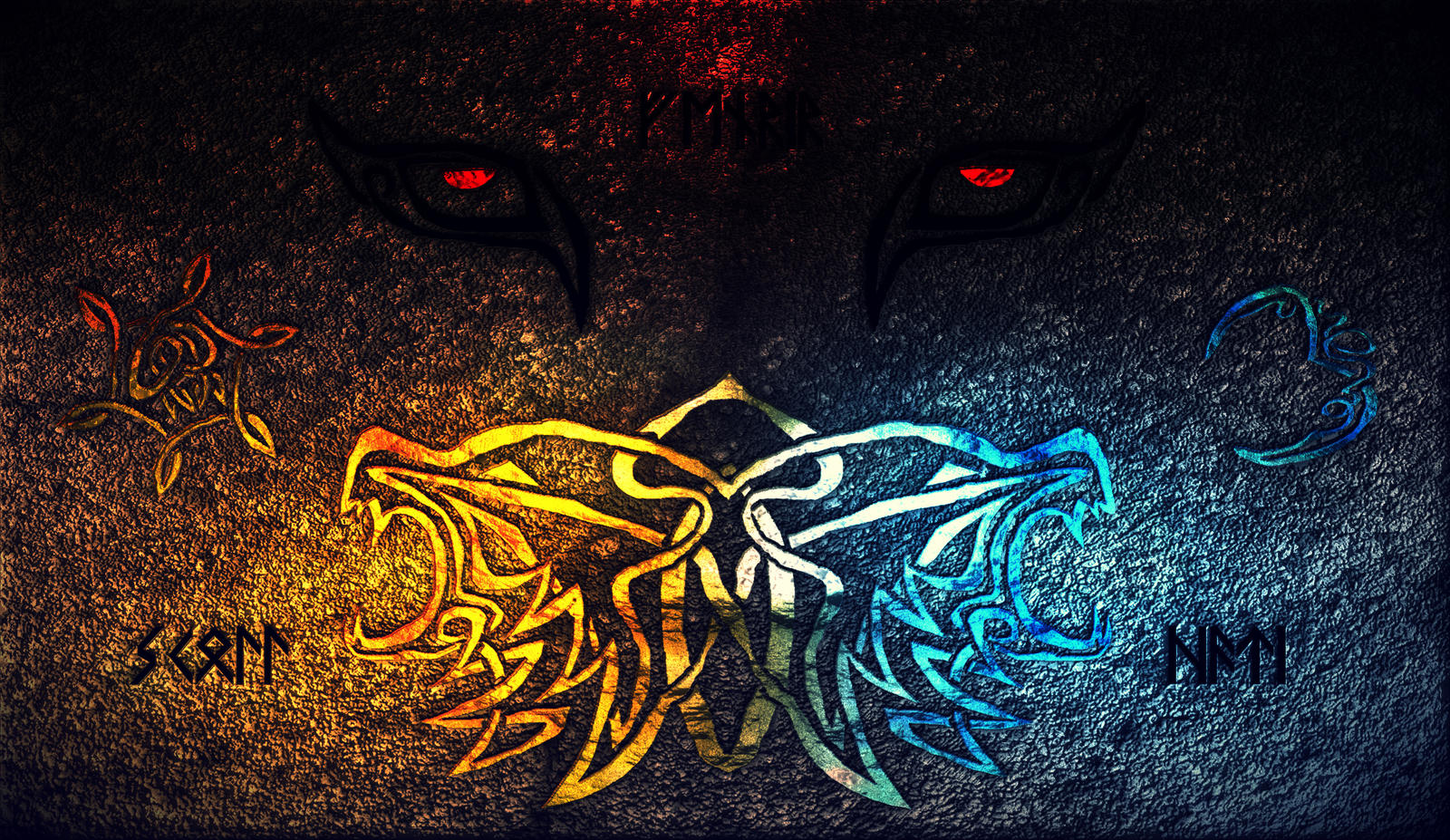
Hati, skoll, and Fenrir by lbdlbdlbd9 on DeviantArt
Hati and Skoll embodied the repeated cycles of the universe and the belief in Norse cosmology that all things must eventually end and be renewed. Beyond time, the savage wolves also symbolized nature's raw chaos and destruction, which the gods can delay but not stop. Their role at Ragnarok cemented them as bringers of inescapable doom for.

World Of Warcraft Hati and Skoll by IzanamiNoKami on DeviantArt
Sköll and Hati, the prominent wolves of Norse mythology, hold significant roles as relentless pursuers of the sun and moon. Their origin and mythological significance delve into the complex tapestry of Norse cosmology. These immense wolves, believed to be offspring of Fenrir, are associated with solar eclipses and cosmic events.

Sköll And Hati The Sons Of Fenrir The Wolf
28 Apr. In the captivating realm of Norse Mythology, Hati and Skoll stand out as two central figures that capture the imagination. These celestial wolves, forever chasing the sun and the moon, embody a compelling narrative that weaves itself into the very fabric of the ancient Norse belief system. As Hati and Skoll relentlessly pursue their.
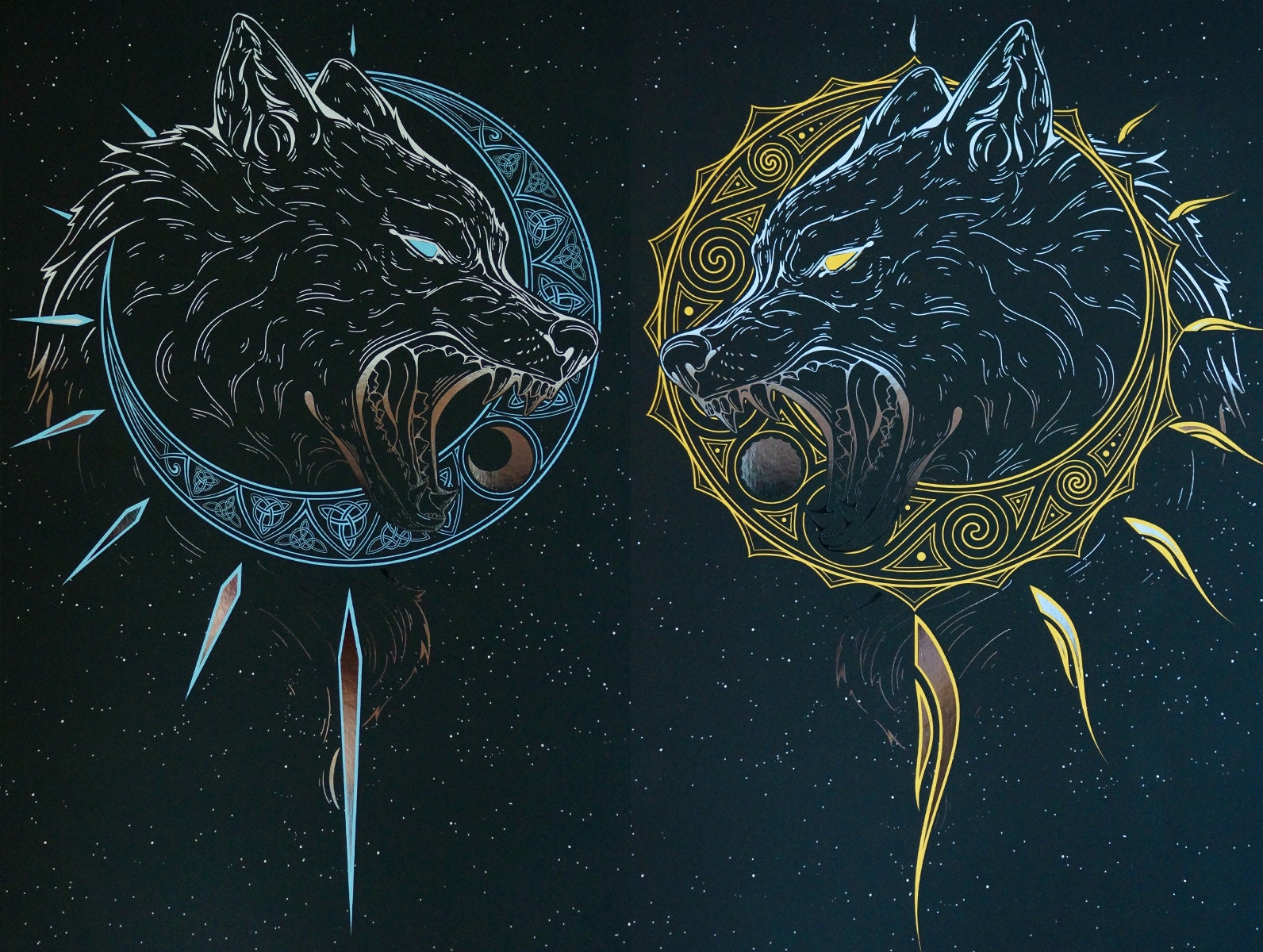
Devour the Sun & Moon Moon A4 Silver Sköll and Hati Foil Etsy
The Identity of Sköll and Hati. To fully appreciate the tale of Sköll and Hati, we must first understand who they are, their origin, and their role in the grandeur of Norse mythology.These wolves are more than just characters in an old myth; they are symbols of greater cosmological principles, giving us valuable insights into the Norse understanding of the world.
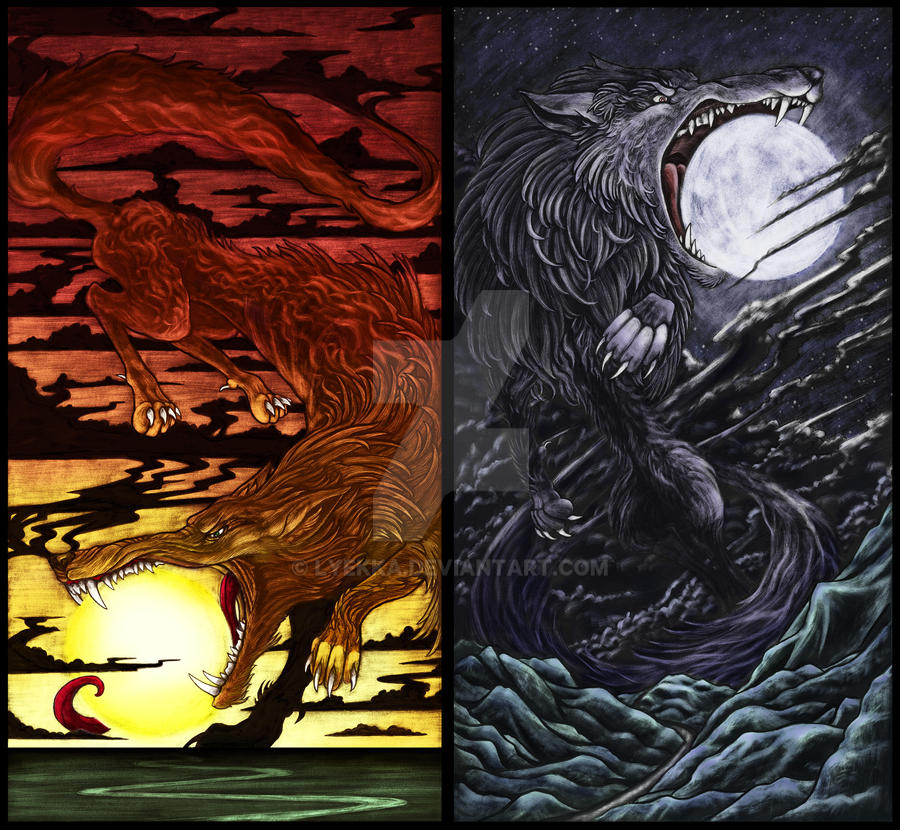
Skol and Hati by Lyekka on DeviantArt
Sköll and Hati at the End of the World. Hati and Sköll were two wolves, brother and sister, who ran across the sky. Hati chased the moon and Sköll went after the sun. Each of these sources of light was personified by a chariot-driving deity. Sól, called Sunni in German, drove the sun while her brother Máni drove the moon.

Skoll and Hati Character Design Flatsales! by Thalbachin on DeviantArt Character design
Sköll. In Norse mythology, Sköll ( Old Norse: Skǫll, "Treachery" [1] or "Mockery" [2]) is a wolf that, according to Snorri Sturluson 's Prose Edda, chases the Sun (personified as a goddess, Sól) riding her chariot across the sky. Hati Hróðvitnisson chases the Moon (personified, as Máni) during the night. Skӧll and Hati are the sons of.
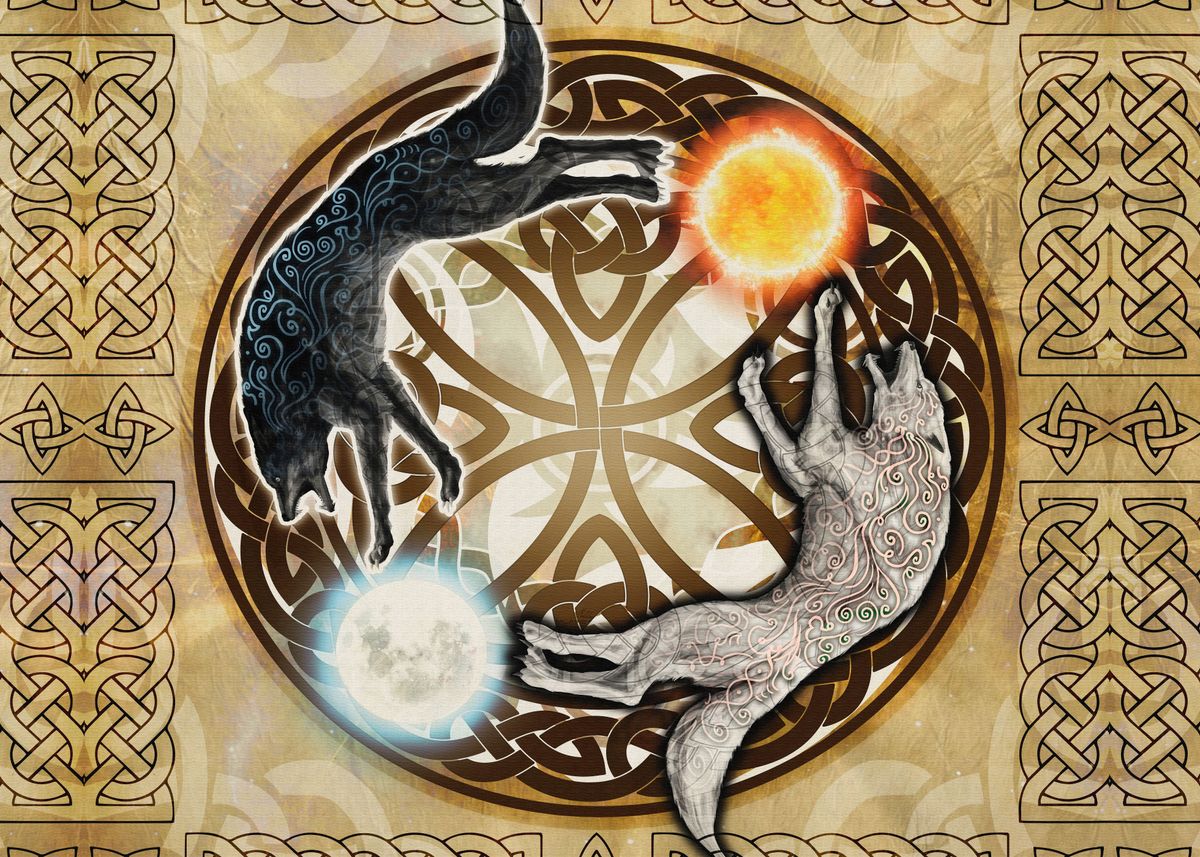
'Skoll and Hati' Poster by MCAshe Art Displate
Skoll is the name of the wolf. Who follows the shining priest. Into the desolate forest, And the other is Hati, Hróðvitnir's son, Who chases the bright bride of the sky. [2] The noun used for Skoll's prey, goði ("priest"), is masculine, and the noun used for Hati's prey, brúðr ("bride") is feminine. Since Mani (the moon) is.

Skoll and Hati, Sons of Fenrir Wolf Stuff
Skoll and Hati are two giant wolf brothers famous in Norse mythology for their pursuit of the keepers of the Sun and the Moon, Sol and Mani. The prophecy of Ragnarök, the Norse "End of Days," decreed that they would one day succeed in capturing the chariots of the celestial bodies. This feat would result in the Norse realms plunging into.